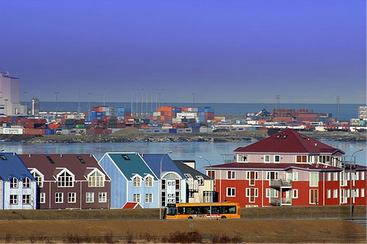Fund managers face the enormous challenge of obtaining returns in financial markets with behaviors previously unheard of, a situation which Michael Power, Investec’s strategist, defines as “surreal”. Who’s to blame for turning the global stage on its head, and what is the solution? According to Power, who considers this situation to be a ticking time bomb for pension funds, the answer to every question lies in Asia, either directly, or indirectly.
If the managers’ job is “not to lose money,” in the first place, and “to earn money” in the second, a task which is relatively easy with some inflation, in today’s economic climate, with countries such as Denmark with negative interest rates, deposits with financial institutions entailing an expense rather than a return, and investors paying governments when they lend them money (as was recently the case with Switzerland’s 10-year bond), that task is not so simple. In the long term, this could pose many problems for pension funds, especially when politicians are consistently set only in the short term (the duration of their term in office), and central banks have not wanted to stop to analyze the problems which are threatening these funds: it’s a ticking time bomb, says Power.
China’s opening to the outside world has changed the configuration of the international trade system in just a few years. When two worlds meet, it’s only logical to meet halfway, explains the Strategist. China has integrated 3 billion people earning less than a dollar a day into an increasingly globalized labor and trade market. Other countries have been faced with competing against that, and as a result, the minimum wage in the United States, for example, has not increased in real terms since the seventies. Western countries have tried everything to avoid stagnation of their economies: central banks have lowered interest rates, they have flooded the cash market by issuing currency, they have financed with debt; but in the end, when support to maintain prices is no longer possible, prices drop and deflation occurs.
Another significant cause for deflation has been the technological advance which has allowed tremendous growth of electronic commerce. Consumers who used to buy in shops, which needed staff, now buy on sites like Alibaba, from anywhere in the world. Alibaba is just an example, but there are other distribution giants that have flooded the world with bargains, causing layoffs and aiding the advent of deflation.
But China is not just the main source of deflation, according to the expert; it’s also the solution. Despite its current economic deceleration, China has been the country to benefit most of the clash of two worlds, as the effect has been the opposite. In China, wages have increased and consumers have more purchasing power. Prices in China are rising. Now, and over the next 12 to 18 months, is the time for investors from the rest of the world to increase the percentage of their portfolios in Asia-Pacific, looking also at Malaysia, Korea, the Philippines, and India, countries where demographics aid inflation and growth. Japan is the exception in the area: cooling is due to lack of domestic demand, caused by an aging population which spends less. A similar situation is occurring in Europe.
Power, who devoted much of his professional career to the Africa and Middle Eastern region, and has lived in Bahrain 12 years, presents his take on what’s going on there. According to the expert, the Middle East is experiencing its most difficult situation since the 70s, trapped by deflation, which in its case was caused by the sharp drop in oil prices, its main export, by 50%. This drastic reduction in income in their trade balances is resurfacing some latent social problems in a region of great political instability and strong disputes, until now buried under thousands of barrels of oil. Not all the countries in the region face this crisis from the same starting point. Gulf countries are rich enough to resist, however, Yemen, Syria, and Libya have no resources with which to replace the missing flow of capital, and their economies are being most affected, even causing internal divisions, as is the case in Syria.
As a conclusion, Power insists on focusing on Asia when seeking yield for long-term investment portfolios, as well as for creative solutions, which may include investments in real estate, looking for niche assets such as rental properties for students in university towns, an idea that can generate interesting revenues for long-term portfolios.



 By Fórmate a Fondo
By Fórmate a Fondo
